The best years of my life
It was BMC's Mike Sayers last race in his home state as a professional, and as usual he was on the...
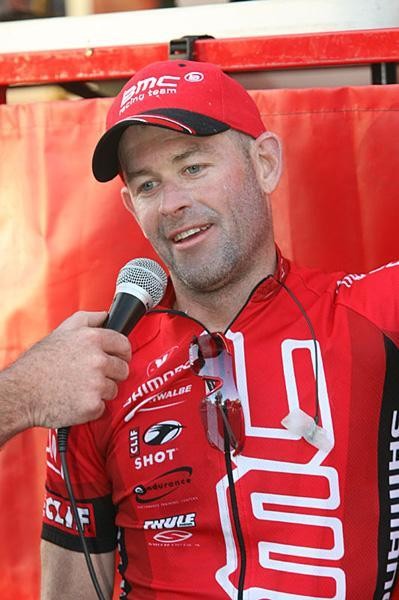
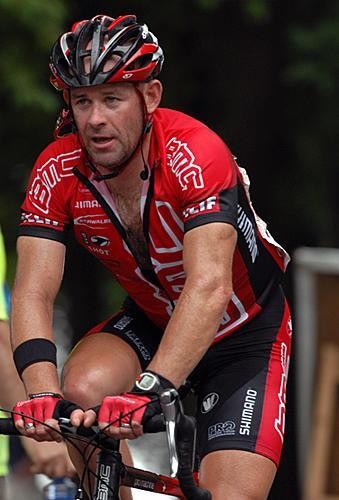
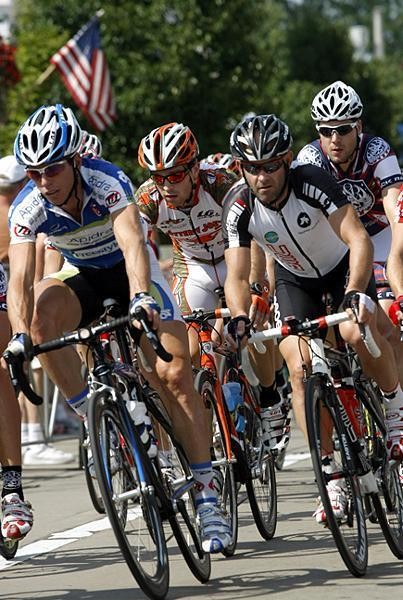
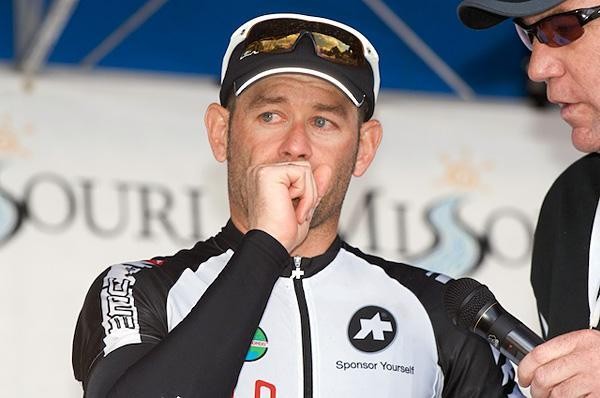



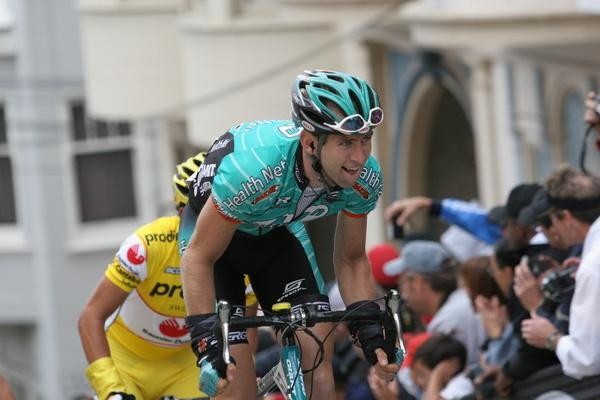

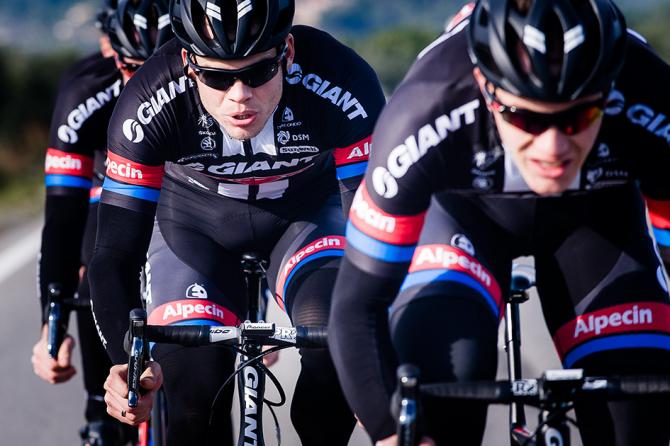
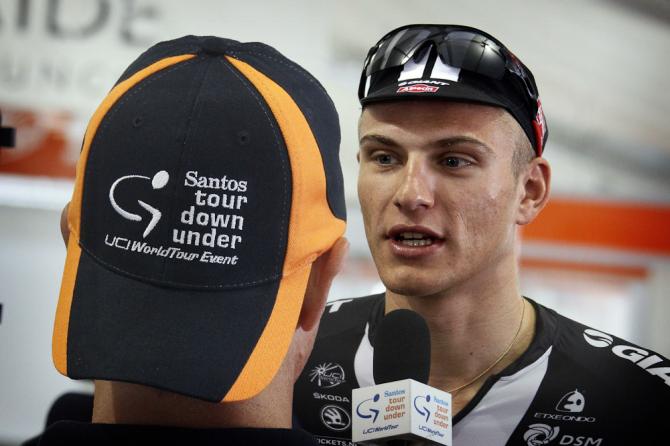
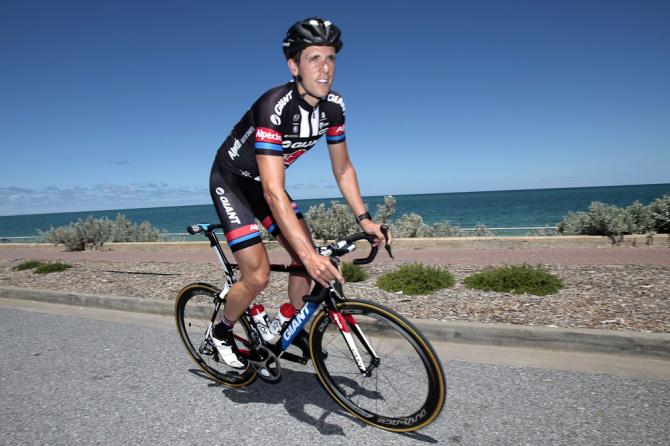
An interview with Mike Sayers, October 9, 2008
He was one of the peloton's workers - a "blue collar, lunch pail" kind of rider - in his own words. And now Mike Sayers, who spent his decade-long career as a consumate team player and lead-out man, hangs up his wheels and heads for a new and different adventure. Cyclingnews' Laura Weislo spoke with the California native about his history and his future.
It was BMC's Mike Sayers last race in his home state as a professional, and as usual he was on the attack. In early September at the Giro di San Francisco, Sayers made it into one breakaway which didn't quite work. After a ten-lap rest, he was back up the road again, this time in what turned out to be the winning move. He wasn't able to translate his uncanny ability to read a race and time his moves into a victory, but the peloton's bulldog held true to his ethos of riding as hard as he can every time he goes into a race.
However, the human body can only take that kind of punishment for so long, and Sayers knew his time was running out. He decided to make the Tour of Missouri in mid-September his last professional road race after a dozen years in the peloton. "I'm starting to feel it," Sayers said as he packed up his bike and carefully stowed it in the trunk of his car.
"It's not the training itself - I don't mind doing the hours and the efforts. It's taking me longer to recover, and it's getting difficult for me to do the big stage races," he admitted.
After two seasons with BMC, a team whose main focus is falling increasingly on stage races such as Tour of California, Missouri and European races like the Tour de Suisse, Sayers knew his place on the team would be harder and harder to keep.
"I get three days in [to a stage race] and I'm not recovering like I need to. Then a mountain stage comes and that's already not my forte. It was beginning to be a struggle, and the direction of the team is going toward being a ProTour and big stage race team. I knew deep down I would have a hard time making the cut next year, and I wanted to go out on my own terms."
Get The Leadout Newsletter
The latest race content, interviews, features, reviews and expert buying guides, direct to your inbox!
He's a man of great pride and dedication to the team - a man who has spent his career sacrificing himself, giving every joule of energy his body could manage in order to help his teammates win while only rarely raising his own arms in victory. "I've always accepted that reponsibility, and tried to ride as hard as I could all the time," he explained. "I think I can count on one hand the number of times I went to a race and didn't ride flat out. I may have been good, I may have been bad, but it didn't matter, I just tried to ride hard every race because that's what I'm supposed to do.
After giving so much, the last thing he would have wanted to hear is that he wasn't needed. "BMC is a great team - it's going to be in the Tour someday; they have big plans. I wanted to go out on my own terms rather than have them sit me down and say they couldn't have me back. Not that they were going to do that - I don't know - but I didn't want to hear that."
"Over the hill"
That was something Sayers had heard before. Three years ago while riding for the HealthNet squad, Sayers was told by the team management that he was "over the hill", that he couldn't win races anymore. "They said I was a waste of resources," Sayers said bitterly. "I was really unhappy because I felt disrespected. You can have all the confidence in the world in yourself, but if management doesn't have faith in you it makes it hard. I decided I would rather not race at all than stay with them."
Sayers admits his performance in 2006 wasn't great, but said that his season was negatively affected by HeathNet's big European push in the spring. "I'm not a stage racer, I admit that. But we went to Europe and I did seven stage races - four in six weeks! I did the equivalent of the Tour de France and then some: we did the Peace Race, the Four Days of Dunkirk, a bunch of one-day races - and I was cooked afterward. I was done!"
It became clear that his time riding with HealthNet was running out, but he hoped that he could move into management. After all, he had acted as a director of sorts when the team first started. But it wasn't to be. At 35 going on 36, he was on the market for a new team - one that would believe he still had a few good years left in his legs.
Origins
A self-confessed sports junkie, Sayers turned to bike racing in 1990 at age 19 after a childhood spent alpine ski racing. A love of sports ran through his family - both his father and grandfather were competitive ski racers. Like most riders who have the physical talent to become a professional, he quickly rose through cycling's ranks to the elite category and then began racing at the national level just two years after starting.
He first dabbled in international racing when, at the end of 1992, he spent two months in France racing as an amateur, but his defining moment in the sport did not come until two years later. "I went back in '94 and I spent the entire season over there with a really good Swiss team. The star of that team happens to be the star of my current team, Alex Moos. "That trip to Switzerland opened my eyes," he recalls. "It showed me what I needed to do. When I came back from that trip at the end of '94, I decided I was going to give it two years of full commitment and if I didn't make it then I'd shut it down. By mid-1996 I had made it. That's when I went pro."
Back in those days, an elite rider could take out a professional license without being on a UCI team. Sayers raced his first pro races as an independent before starting a six-year association with manager John Wordin. "I went to John Wordin's first incarnation of Nutra Fig/Colorado Cyclist in the winter of '97," explains Sayers. "I didn't make the team, but he brought me back in March because he got rid of some riders. For the rest of that year and until 2003 I rode for him through all the team's incarnations. I was there from the very start to the end."
After the implosion of the Mercury team in 2002, Sayers found himself without a job in January, 2003. At 32, he was afraid he'd reached the end of his career, but then he got a lifeline. "I got a call from Thierry [Attias] and Greg [Raifman] who were putting together what was at the time a local team that was going to do a few NRC races."
Sayers negotiated an offer at the bare minimum of survival for a pro bike racer, and then went about trying to help boost the team into something bigger. He steered the squad towards his old Mercury teammate Gord Fraser. "They got together enough to pay Gord, but there was no staff, no directors, no soigneurs - just one team car." Sayers spent the year making the team's travel arrangements and getting the racers to events, all while racing full time.
The good years
Those early years at HealthNet were some of Sayers' favorites, and working for Fraser and the team's other leaders like Chris Wherry, was some of his most satisfying efforts.
"We saw some really tough times. Physically tough. Gord was a very tough, very demanding team leader, but on the other hand he delivered 99.9% of the time. He really did in his own strange way make racing easy because you just had to turn your brain off and ride as hard as you can - and he always came through. He was really special that way. I don't know if there will ever be another rider as gifted as he was."
"My best moments have been from a team aspect. I've always been a team guy. I think those years - the year that Henk Vogels and the year Chris Wherry won the US PRO - those were big years for me because I knew I had integral parts of those victories."
After having put so much effort into racing, Sayers wasn't quite ready to accept that his career was over when HeathNet said it was. "That's when I called Gavin [Chilcott, of BMC]," he says. The rest is history. After two solid years with BMC, Sayers is now ready to call an end to his road racing career, and he appreciates the BMC team for having made the last years satisfying. "The Mercury years were special, but I really felt more connected to BMC than any other team I rode for," Sayers reflected.
"Gavin's always had faith in me. I think that we're good for each other. He's taught me some valuable lessons. I tried to heed his advice because I think he's a really smart guy - to represent his program as best I could and at the same time try to get his/our young riders up to speed as quickly as we could. That's been my job, and I think I've done a good job of it."
What is to come...
Saying good-bye to the pro peloton is a difficult transition for any rider, and Sayers is fighting to find something to fill the void. At the end of Tour of Missouri, race announcer Dave Towle called him up on stage to give an impromptu farewell address. Fighting back tears, he gave a sincere and emotional speech.
"This has been the best fifteen years of my life," he said. "I don't want it to be over, but deep down in your soul you just know sometimes. I know this is it and I'm honored to end it here with the BMC team."
On his website, Sayers recalled the day:
"My last day at Missouri was the best day of my life next to the birth of my son and my wedding. It is a day I will remember for the rest of my life. A day filled with a lot of raw, exposed emotion and spent with good, long time friends and teammates."
He explained to Cyclingnews at the time how much the sport came to mean to him, and how it makes retirement that much more difficult. "Every part of my life is built around my cycling career, but it wasn't planned that way. My house, my car, my wife, my kid - everything that I have and that I do is built around my cycling and taking care of myself and my business and doing my job the best I can.
"I'm trying to get a job nailed down so it's not so hard on me mentally, but I think it's going to be harder on me than I am acknowledging, and that's something I will have to deal with.
"It's hard to deal with, but it's part of me being an adult and letting it go. Cycling is going to go on whether I'm here or not. I can race another year, another three years. There's always going to be another guy who's going to win more races, there's going to be new teams. At some point I have to step back and say I've been a part of it a long time and it's not part of me anymore."
As part of his transition, Sayers has signed on to dabble in cyclo-cross this fall with the Sterling Team. "I'm hoping it will be a fun way to make a transition from road racing. It doesn't take a ton of training, which is part of getting back into a 'normal' lifestyle."
At the same time, Sayers is still sending out resumes, and said he has a few organisations interested in signing him on. "I hope to have something solid by the end of October," he said, adding that one of the teams he's talking to is BMC.